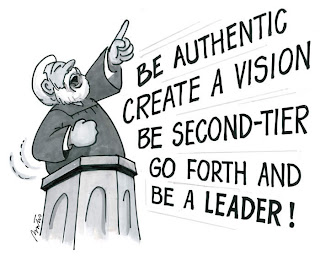Listening to Eric Schmidt, Google’s CEO talking to John Battelle at the Web 2.0 conference, I was struck by his confidence in Google’s ability to *monetize everything*.
It’s not like Google doesn’t have great credibility in the monetization space. Google’s revenues are approaching $10 billion because they figured out how to monetize internet search.
In fact, it’s possible that all Schmidt is talking about is extending the monetization of search. Here’s my hypothesis:
- Potentially all data stored on the internet represents some value to somebody…this is the Longtail – stretching from ‘hits’ to the world’s most obscure niches
- The more data there is, the more difficult it is to find specific data
- The more difficult it is to find, the more important search advertising becomes to increase search visibility
- The more important that search advertising becomes, the more marketers are prepared to pay for it
- The more marketers are prepared to pay it, the richer search marketing networks become
- The richer search advertising networks become the greater the competition to be a search advertising network
- The way to win the search advertising network wars is to become the pre-eminent portal to the internet – the user desktop
- The way to become the user-desktop – sorry Microsoft - is to become the provider – for free – of everything a user needs – from applications like spreadsheets and word processing to hardware and maybe even the networks that users access.
Schmidt asks Battelle an interesting question – “why shouldn’t your cell phone be free?”. It’s interesting, because if the cell phone is free, how is Schmidt assuming that cell phone makers will survive?
My hypothesis, is this: he’s assuming pretty much what already happens today but with a twist. Today phone makers are subsidized by the network providers who in turn are subsidized by network users. In the future, I believe he’s suggesting that phone makers can be subsidized by network providers who are subsidized by network ADVERTISERS – organizations interested in increasing their network visibility through advertising. So, here's a question: if this is true could all network access devices including computers ultimately be free?
Schmidt made another interesting comment when asked why Google purchased YouTube. His answer was simple – “we noticed a sudden breakout in user-generated video and determined that video had become a fundamental data type”….and monetizing fundamental data is exactly what Google is all about.
So what is fundamental data? E-mail? Conversations? Software? Movie listings? Pictures?
I’m thinking yes, yes, yes, yes and way more. If it’s bit and bytable – it’s data – and from Google’s perspective it can be monetized through advertisers.
So what does this mean for – say – software companies or other businesses?
I don’t know. Perhaps Schmidt provides some clues…
Although he’s confident and high on Google’s potential, he’s clear they need to build better partnerships. I’m pretty certain that’s going to make sense for everyone. It will be difficult to be an ‘island’ and still be fundamental. Partnerships extend networks, build larger communities and ultimately increase search visibility.
Schmidt and Battelle also reference the power of Google’s immense and growing user database. Databases make filtering more effective and more efficient. Having good databases will be good thing. They will be valuable. So, I can see software and other companies creating and taking much more advantage – in their product, in their advertising, and in their partnering – of well thought out and carefully mined internal databases.
Finally, I can see a race for free. OK, maybe not free, but with value being created from other sources - data, partnerships and…even on-site advertising revenue – I can see makers of certain products adapting their business models to attract network traffic and visibility, not just product sales. I can see product pricing declining as this happens and as an increasing number of applications become readily accessible to all users, not just geeky open-source users.
What’s intriguing about what Google’s doing is the breadth of it’s target market. Companies like Microsoft make by far the majority of their revenue from large enterprises. They’re the ones who can afford the large ticket prices. By making advertising affordable even to individuals, and reliable networked applications available for nothing – large organizations maybe the last ones to adopt the Google model. But by entrenching so firmly on individual and SMB desktops, its possible that ultimately even large organizations will find themselves ensnared in Google’s ‘net’.




2 comments:
I'm uneasy with this notion of free consumer products and services subsidized by ad revenue. Just how much advertising opportunity is there really out there to replace 100's of billions of dollars in software and service revenue?
Assuming that the "Long Tail" has yet to be fully exploited..Multi-level advertising is still pretty spooky to me. An ad selling a vehicle to another ad and so on. An elaborate ponzy scheme perhaps?
Sure theres some pretty compelling numbers to suggest that tons o cake is being made...but when does it collapse on itself if the free model is at the core of its momentum?
Couldnt agree more to this .... as we open time capsule we now see (sinc posting in 06) how google has opened time capsule to cell phone use with google cell.. and further exploitation of data. This is wheat we do monetize data -- most companies dont know how. Peter Stein Stein / Digital Media www.steindigital.com
Post a Comment